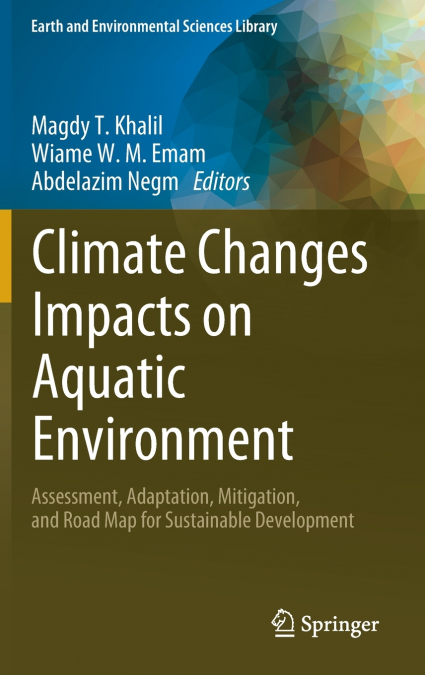
This book provides a detailed and a clear picture about the impact of climate changes on all aspects of our lives. The book will shed some lights on the challenges and obstacles that agricultural development in different countries are going through regarding the dimensions of food security due to climate change. The vulnerability of agricultural system will be discussed and the methods to adapt to some impacts of climate change will be projected. Some authors will focus on how Global Climate change may directly or indirectly affect the water cycle and, consequently, the quantity and quality of water resources needed to meet human and environmental demands. It can lead to recurrent floods and droughts, rising sea water levels with serious effect on coastal aquifers, and extreme water temperatures that can exacerbate many forms of water pollution. Water supply reliability, health, agriculture, energy, biodiversity and aquatic ecosystems will all suffer the impact of such challenges.The demand for water to meet these needs is also affected by climate change. Evidently, adopting a holistic water-energy-food nexus approach, while promoting the use of non-conventional water resources, can better support a transition to sustainability, a fact that should appeal to national interest and encourage governments, the private sector and civil society to engage. The results of the Climate changes conference; COP 27 that held in Sharm El-Sheikh in 2022, will be discussed in some chapters to illustrate the several efforts that have been taken by some countries to adapt to climate changes, including continuous breeding program to produce crops adapted to higher temperature, salinity, shorter in life cycle, and better in post-harvest and shelf life. The efforts to improve on farm water management and reduce water consumption in agriculture to increase water productivity will be discussed. Saving water from agriculture will be associated with saving fertilizers to control GHG emissions and could allow allocating water for land reclamation. Some Chapters aim at highlighting the impact of climate change on water resources depending on a clear understanding of how climate, fresh water, and biophysical and socio-economic systems are interconnected at the global and regional scales, meanwhile presenting state-of-the-art technologies and innovative/holistic solutions for adaptation and mitigation measures, and increasing the resilience of vulnerable communities to climate change, with the ultimate goal of achieving sustainable development towards 'the future we want' while 'leaving no one behind.